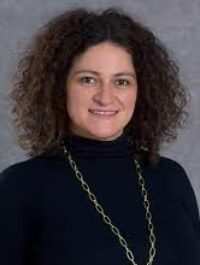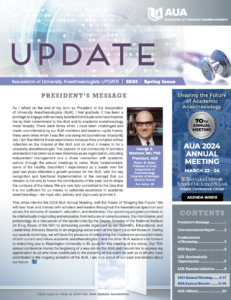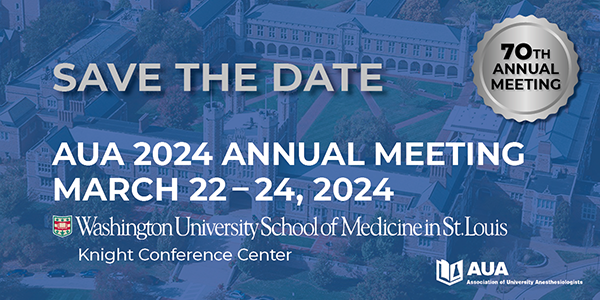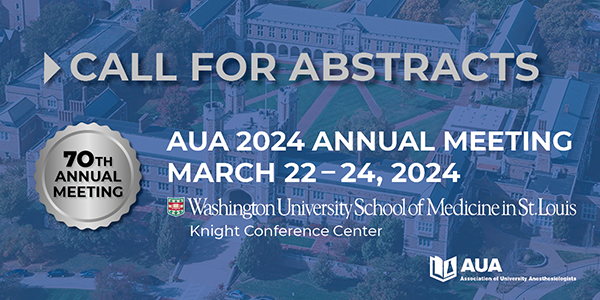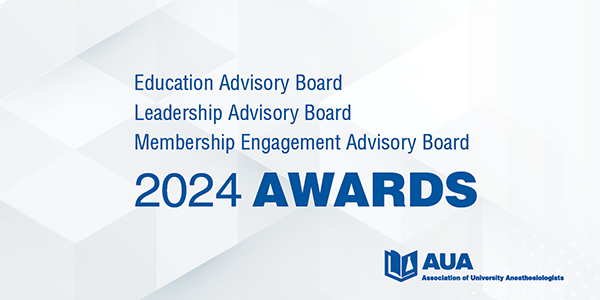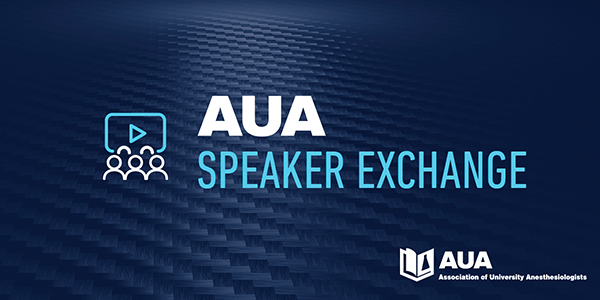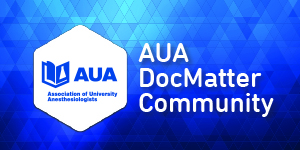LAB Annual Report
October marks the two-year anniversary of the Leadership Advisory Board, created by the vision of AUA Past President, Dr. Jeanine Wiener-Kronish, and with the support of the AUA Council and leadership.
The Leadership Advisory Board (LAB) evolved as a response to two challenges: the perceived lack of diversity among AUA members, and the recognized need for mentorship and sponsorship in academic anesthesiology. In May 2019, a nucleus of AUA members, led by Dr. Wiener-Kronish, started the conversation around diversity within our association. In October, the need and overall vision for the LAB was proposed to the AUA council.
In parallel, a survey was sent to our members to get a better understanding of our membership demographics and our group’s ideas about diversity and future direction. We collected 475 responses and received close to 250 comments. The survey results confirmed the prevailing impressions: our membership is predominantly comprised of men (72%), of physicians who identify as white (74%), and who are older than 61years of age (42%).
Through the comments, we identified key opportunities for the AUA, including:
1 - Provide mentoring for our members
2 - Create networking opportunities
3 - Seek membership input in program planning and design
4 - Deliberately engage in activities that promote diversity, equity and inclusion
The mission statement and the goals of the Leadership Advisory Board were formulated around those comments. The LAB was approved by the AUA council in May 2020 and by the membership at large in August 2020. The call for nominations was met with a robust response and the inaugural board of 15 members convened in October 2020. Since then, the LAB has been instrumental in furthering the AUA mission as the academic home of a diverse group of anesthesiologists, dedicated to the advancement of academic anesthesiology and for the professional development of our members.
Toward a More Diverse and Inclusive Specialty
Publications
During the last year, we all witnessed and some of us experienced the racism-driven violence targeting members of our communities. The LAB and AUA issued statements that reaffirmed the AUA’s position against racism, bias, and violence. Members of the LAB published a joint letter to the editor emphasizing the importance of language in academic writing and when reporting on racial inequities.
More recently, in collaboration with the Communications Committee, the AUA and LAB celebrated Women in Medicine month with a dedicated newsletter, highlighting the stories of five women in anesthesiology, their advice, and their insights for a more inclusive specialty.
Meeting Program: 2021
The Leadership Advisory Board contributed two panels to the AUA 2021 annual meeting, held virtually on May 13th.
The first session was moderated by Dr. Wiener-Kronish with presentations from Drs. Hastie, Lane-Fall, and Armstead. The session discussed the why, how, and what next on the topic of promoting diversity at the AUA and in academic anesthesiology.
Maya Jalbout Hastie, MD, EdD reviewed the history of discrimination in medicine, the lack of diversity in our health care workforce, as well as the manifestations of lack of inclusion at the individual, organizational and societal levels. The focus was on describing why diversity mattered and the impact on the health outcomes of our patients.
Meghan Lane-Fall, MD, MPH discussed models for promoting diversity in the workplace, anchored in organizational psychology. The session offered a stepwise approach for organizations and societies to recognize the problem, design a strategic approach, implement it, and reevaluate its outcomes.
Valerie Armstead, MD proposed the next steps for organizations and teams to effectively increase diversity in their workforce. She provided examples of successful models that effectively increased diversity and inclusion in medicine and beyond. Dr. Armstead stressed the importance for organizations to craft a statement that reflects their dedication to diversity and to addressing unconscious bias. She presented strategies to increase diversity within organizations such as the expansion of recruiting initiatives; outreach to groups and societies of underrepresented individuals; publicizing of DEI achievements; and consultation with DEI experts in health care.
A second session led by the LAB featured Dr. Renee Navarro as the guest speaker. Renee Navarro, MD, PhD, from the University of California, San Francisco, discussed how to address discrimination in the workplace. In her presentation, Dr. Navarro presented evidence that lack of diversity and equity in a workplace has a negative impact on patients and staff. Specifically relevant to our specialty, she described the inequities in the management of pain between Black and white children. Dr. Navarro presented the audience with a path forward in eliminating health care disparities and to provide optimal care. First, we have to recognize, address, and overcome our inherent unconscious biases. Second, she emphasized the need to increase diversity of the health care workforce. Then finally, she highlighted the importance of mentoring underrepresented minorities in anesthesiology and across academic medicine.
Webinars
Starting in March 2021, the AUA established a series of webinars open to members and non-members, held regularly throughout the year, and available for viewing online. The LAB-sponsored webinars are focused on professional development of academic anesthesiologists. The first webinar— Women in Leadership: Lessons Learned—was a moderated conversation with four women who currently serve as chairs of their departments: Drs. Vesna Jevtovic-Todorovic, Jill Mhyre, Holly Muir, and Cynthia Wong. During the one-hour session, the panelists discussed their experiences as women in leadership positions, the challenges they faced, the lessons they learned, and the impact of the pandemic on the workforce.
An upcoming webinar on December 7th, 2021— Building a Career in Research and the AUA—highlights the demands and rewards of careers in research, and the role of the AUA in sustaining researchers and scholars.
Members can access the highly engaging sessions or register for the upcoming webinars at this page.
Networking Opportunities
A key feature of the annual meeting is the opportunity to meet colleagues, to establish networks, and to share ideas. To mitigate the potential impact of a virtual meeting on connectivity, the LAB, in collaboration with the Education Advisory Board, and the Scientific Advisory Board organized themed networking sessions during the AUA 2021 Annual Meeting. A total of nine one-hour sessions were held over Zoom at the end of the meeting day, led and moderated by members of the three advisory boards. Overall, close to 60 members attended those engaging networking sessions.
Another networking event, the Women’s Breakfast Session, was held before the start of the meeting’s second day. 45 AUA members joined the virtual session to participate in the conversation which was led by Drs. Jeanine Wiener-Kronish, Cynthia Wong, and Teresa Mulaikal. The moderators discussed how to be effective as leaders, how to navigate a career path toward leadership, when to say “yes” and to how to say “no.” The brief presentations were followed by an open and engaging conversation with the attendees.
Engaging Members in Program Design
This year and for the first time, the AUA invited members to submit session proposals for the annual meeting, providing our members the opportunity to participate in program planning. The proposals were reviewed by a committee of members with different areas of expertise. A total of eight proposals were accepted to be presented at the annual meeting or as webinars throughout the year. In addition, a new category of member-submitted proposals was created at the annual meeting to highlight our members’ contributions.
The achievements of this past year were possible because of the engagement and dedication of the LAB members to the AUA and to academic anesthesiology. Together, we continue to build the AUA as an academic home for our members, to expand the outreach of our association, to support our members, and to sustain the next generation of anesthesiologists.
